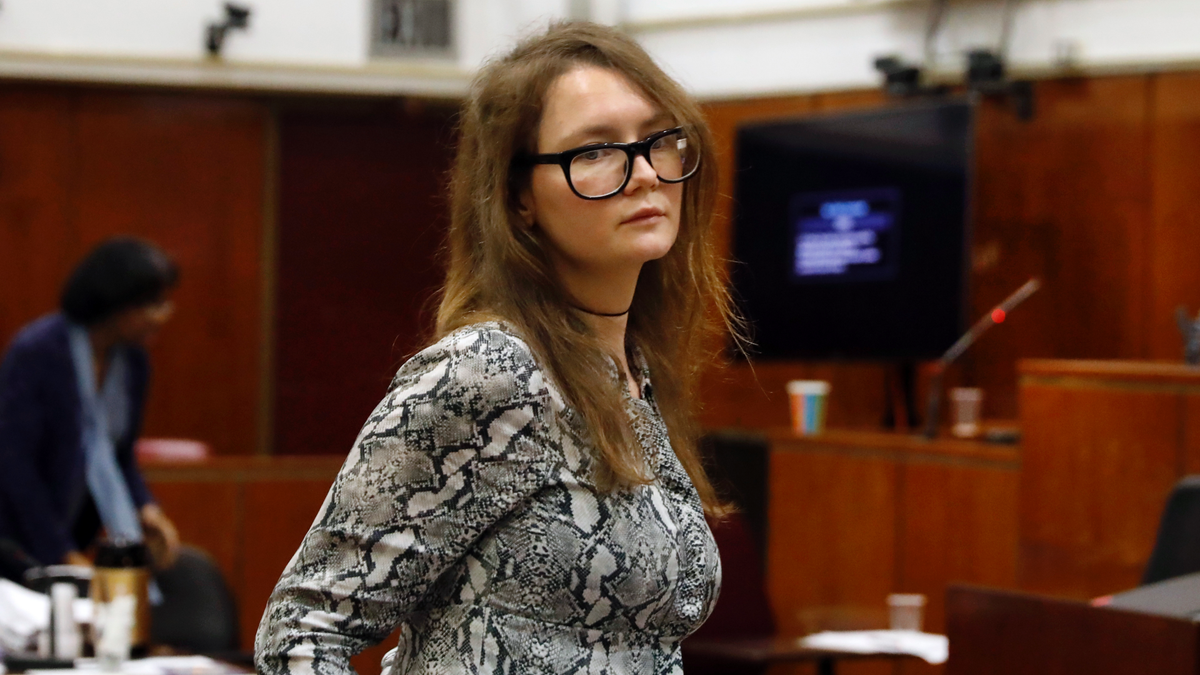
Anna Sorokin leaves during the lunch break at her trial in New York State Supreme Court, in New York, Monday, April 22, 2019. Sorokin, who claimed to be a German heiress, is on trial on grand larceny and theft of services charges. (AP Photo/Richard Drew)
NEW YORK – Prosecutors portrayed fake German heiress Anna Sorokin as a profligate con artist, while her lawyer insisted she was an aspiring businesswomen taken in by New York's extravagance, as both sides wrapped up their arguments Tuesday.
Jurors will now decide whether Sorokin is guilty of grand larceny and theft of services following a spending spree that spanned 10 months and, prosecutors allege, defrauded people and businesses out of $275,000 and bankrolled her foray into the Manhattan socialite scene.
The deliberations cap a more than three-week trial that drew international attention and tabloid headlines about Sorokin's courtroom fashion choices. Sorokin, who adopted the name Anna Delvey, deceived friends and financial institutions alike into believing she had a 60 million euro wealth overseas that would cover her lavish hotel stays and jet-setting lifestyle.
Closing arguments focused in large part on Sorokin's intent, which prosecutors must demonstrate was criminal in order to convict her.
Her defense attorney, Todd Spodek, insisted Sorokin had been "buying time" and planned all along to settle her six-figure debts, portraying her as an entrepreneur who got in over her head. He compared her at one point to Frank Sinatra, saying "they both created their own opportunities" in New York.
"There's a little bit of Anna in all of us," Spodek said. "This is the life she chose to live."
Spodek added that Sorokin "was ambitious, she was persistent and she was determined to make her business a reality," referring to a private arts club she proposed building and for which she sought a $22 million loan. She led an unorthodox — and at times unethical— lifestyle, he added, but Sorokin was "enabled every step of the way by a system that favors people with money."
Assistant District Attorney Catherine McCaw said Sorokin told "lie after lie" to prolong a life of luxury she couldn't afford, providing forged financial records and identifications to banks. She lived out of ritzy hotels on an overdrawn account, dined at the finest restaurants and even hired a personal trainer who charged $300 a session, McCaw said.
Sorokin not only assumed a different identity for herself but created a team of "imaginary" assistants, McCaw said, a ruse that lent credence to her efforts to expand her credit. There was, for instance, an accountant who didn't exist whom Sorokin blamed for delays in wire transfers.
"All of the defendant's wire transfers are merely a figment of her imagination," McCaw said. "These are not white lies. These are lies that help you understand that the defendant, in fact, had criminal intent in this case."
McCaw said Sorokin once burned through $40,000 over a period of just eight days. During one stay at a W Hotel, McCaw said, Sorokin "barricaded herself" in her room and would not even allow staff to check the minibar, even as she insisted they refill it.
She said Sorokin racked up $679 in "incidental" expenses at the hotel.
"That's an awful lot of M&Ms," McCaw said. "She knew she couldn't pay for it."

